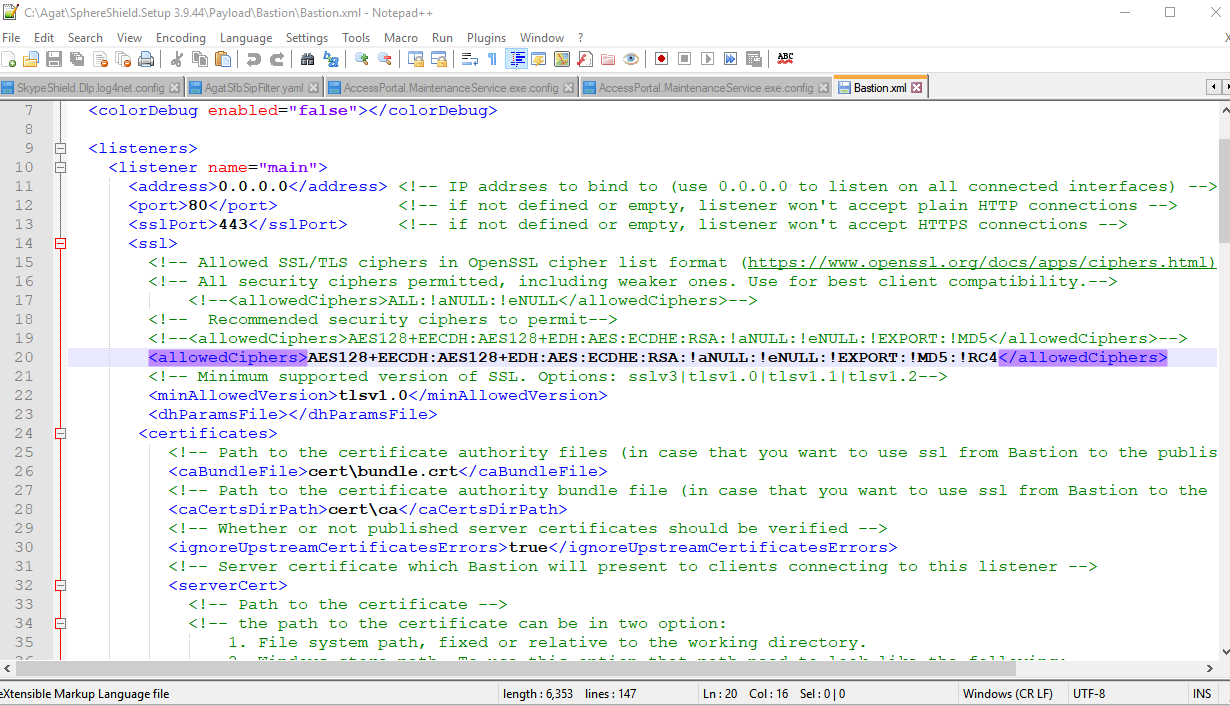How to configure
Navigate to bastion installed folder - by default c:\agat\Bastion
There open the file Bastion.XML preferable with notepad++ or other text editing software.
Scroll down to <AllowedCiphers> tag which can be found in each Listener.
All available and ignored ciphers can be found between the 'Allowed Ciphers' tags.
Once the ciphers and TLS version are properly configured, save the file and restart the Bastion reverse proxy service and it should be applied.
Cipher Syntax explanation
Putting an exclamation mark ( ! ) before a certain cipher will disable use of that particular cipher.
Colon ( : ) is used to end a list of ciphers.
When configuring ciphers, they need to be grouped together in lists ending in a colon ( : ).
The grouping is done based on which cipher suite the particular ciphers belong to.
The complete list of ciphers based on suite can be found here:
https://www.openssl.org/docs/manmaster/man1/ciphers.html
There should be separate lists for allowed ciphers and for disabled ciphers.
The following is an example of a more complex and hardened cipher setting:
The plus ( + ) sign between cipher names refers to ciphers using the combination of all mentioned algorithms.
For example EECDH+ECDSA +AESGCM means that ciphers using all 3 of those algorithms will be allowed.
The example !MD5: means that all ciphers using the MD5 algorithm will be disabled.
The minus sign or dash ( - ) is the openSSL name of a specific cipher.
For example !ECDHE-RSA-AES128-SHA will disable the use of the specific cipher - TLS_ECDHE_RSA_WITH_AES_128_CBC_SHA
Changing the cipher configuration should also be done according to the minimum allowed version tag <minAllowedVersion> which defines what version of TLS is allowed.
So if the minimum allowed version is tlsv1.2 then there cannot be an allowed cipher which is part of a lower version TLS cipher suite.
Testing
A recommended test would be to use https://www.ssllabs.com/ssltest/ to test the LyncDiscover URL if it is available externally.
This test will show the allowed ciphers currently in use and provide their security score.

